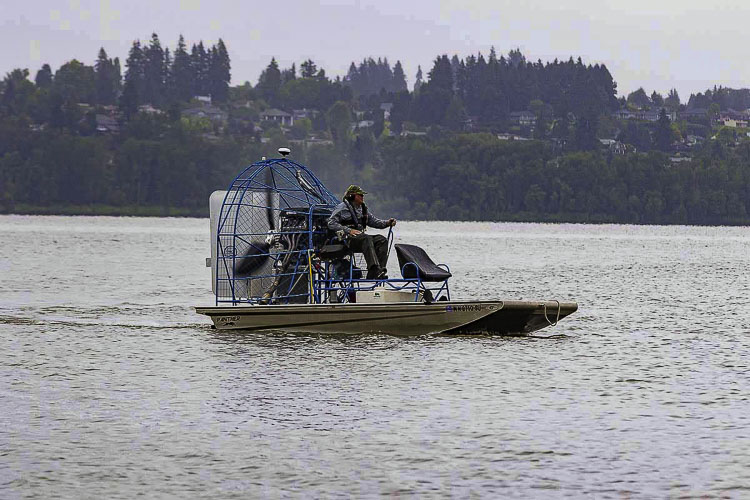Government officials to survey lake in July, then try to come up with plan
A group of citizens who love Vancouver Lake received national attention for their work in ridding the lake of Eurasian watermilfoil.
Now, the lake is dealing with another nasty weed, curly-leaf pondweed.

And, according to the Friends of Vancouver Lake, it is coming down to two options: Pay a lot now, or pay a whole lot more later.

The Friends of Vancouver Lake (FOVL) organization is on it, getting the word out, talking to local government officials, asking foundations for grants, and hoping for a sooner solution rather than a later one.
Larry Cassidy, the chairman of FOVL, said state law requires that the lake get treatment, to get rid of noxious weeds. But when, and how much, are factors that need to be considered.
“We want to try to treat it this fall,” Cassidy said, noting that the cost for treatment would be around $80,000. “If we treat it next spring, it’s going to run $140,000. The CP weed is rocking along. We’re desperately trying to raise money to get this treatment.”
It is not as simple as picking a fall date and just adding herbicide to the lake, though.
Terry McNabb is the owner of Aquatechnex, was instrumental in the treatment to rid the lake of watermilfoil. He said the timing has to be perfect to kill off curly-leaf pondweed.
The best product to use against curly-leaf pondweed, McNabb said, is Galleon. It will do the job but only if done at a precise time in the fall, after turions — similar to seeds — have sprouted, or in the spring. It would be less expensive in the fall, based on water volume of the lake, than say in the spring, McNabb said, but he warned that applying the herbicide too soon would not help.
Turions develop in curly-leaf pondweed in the summer months, then sprout.
“One plant turns into 10, and then 10 plants will turn into 100,” McNabb said.
Applying herbicide before the turions sprout, though, will do nothing.
With that timing in mind, Clark County officials and the Friends of Vancouver Lake are in the process of determining the next steps.
In 2019, the county’s vegetation management team completed the Integrated Aquatic Vegetation Management Plan (IAVMP) which addressed the watermilfoil. As part of the plan, the county is required to survey the lake to confirm the milfoil has been controlled, according to a statement from the county.
“If there is no detectable milfoil during the survey, we can begin to have conversations with FoVL about redirecting those efforts toward Curly Leaf Pondweed,” the county said in a statement.
With the assistance of the Washington Department of Fish and Wildlife, the county is planning its next survey the week of July 12.
Kathy Gillespie, a board member with the FoVL said in June that there has been no evidence of watermilfoil. If that holds with the survey in July, then plans can be made to attack curly-leaf pondweed.
“It’s different from milfoil but just as damaging to the lake, and it will clog it up if we let it get out of hand,” Cassidy said.
McNabb, the expert in controlling noxious weeds, agreed. Curly-leaf pondweed, he said, can “grab” small boats or shells. The weed can also be dangerous to swimmers, who can get tangled.
McNabb, who lives in Bellingham, was instrumental in getting the state to add curly-leaf pondweed to its list of noxious weeds.
He said Galleon will work.
“It will stop that plant from making turions the day you put it out. Over time, it will take the whole plant out, too,” he said. “It’s a timing thing. You really need to make sure the plants are ready to take it.”
For the Friends of Vancouver Lake, the time to start planning for the treatment is now.




